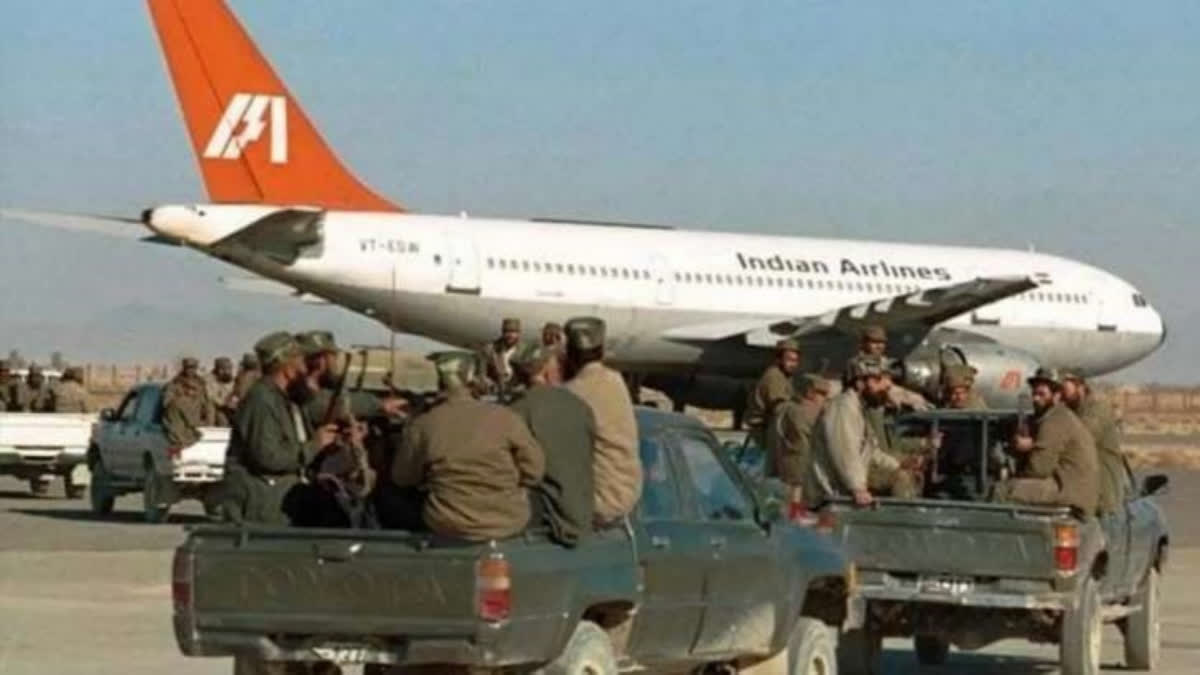New Delhi: Air India Captain Devi Sharan, the pilot of flight number IC 814, which was hijacked by the Taliban in Kandahar in 1999, who took a trip down memory lane on Monday, was in fulsome praise for stepped-up security mechanism put in place by country's aviation authorities.
Captain Sharan while remembering the horrors of that incident said "Post-1999 hijacking said a "visible metamorphosis has taken place in airport security scenario" and the air space has become extremely 'safe' in the last 24 years. He also said that "earlier local/state police used to guard the airport security which was not compatible and that is why CISF was introduced. If ASF (Airport Security Force) would've been there back then, this hijack could've been prevented."
Also read: 20 years on, IC 814 hijacking continues to haunt
Although proposals regarding such a force (ASF) were floated after the 1999 incident it never materialised, he added. Addressing the media at the Bureau of Civil Aviation Security (BCAS) headquarters in New Delhi, the former pilot said, "Many countries in the world today have ASF, a special security force to guard the airports. At that time, Punjab Police was responsible for maintaining the Amritsar airport security. Wish we were lucky enough to have ASF then."
Aviation security regulator BCAS is organising Aviation Security Culture Week from July 31 to August 5 for the first time in the country. All the stakeholders of Indian aviation have given the theme "See it, Say it, Secure it" for this. BCAS DG Zulfiqar Hasan said all aviation stakeholders like the Airports Authority of India, Airlines, CISF and passengers will participate in this Security Culture Week.
In his address, the DG BCAS while replying to a bunch of questions from the media personnel on airport security said that in these times with the advent of AI and other technology "the biggest challenge for airport and aviation security from today is drone and cyber attack." On the latest incidents of unruly passengers making a nuisance on flights, he said, "Those mischief mongers must be dealt with strictly. There should not be waste of time on FIRs against them. It is needed to keep the ecosystem safe for all other passengers."
On installing full-body scanners at the airports, he said, "The process to install these body scanners is under consideration. There are 2-3 vendors across the world. There are some issues in reference to procurements but we will meet the deadline." There are some major airports which have already installed these body scanner machines. Delhi, Mumbai and Bangalore airports have the facility installed, said the DG. Talking about confiscated items at the airport, DG Hasan said, "Close to 25,000 prohibited items are confiscated from air passengers in India on a day-to-day basis. This arises due to a lack of awareness from passengers and results in a lot of delay during airport security checks."
Out of these 25,000 confiscated items, lighters account for the biggest confiscation in the handbags. "Within hand luggage, lighters constitute the largest share of prohibited items found among 4.8 lakh air passengers daily. Lighters make up 26 per cent of banned articles. Scissors and knives are found 22 per cent and 16 per cent, respectively", said the DG. Bag screenings records of nearly 3,300 flights per day show power banks account for almost half of the prohibited items found within checked-in luggage. Lighters account for 19 per cent while loose batteries add up to 17 per cent of recovered items, the DG added.



